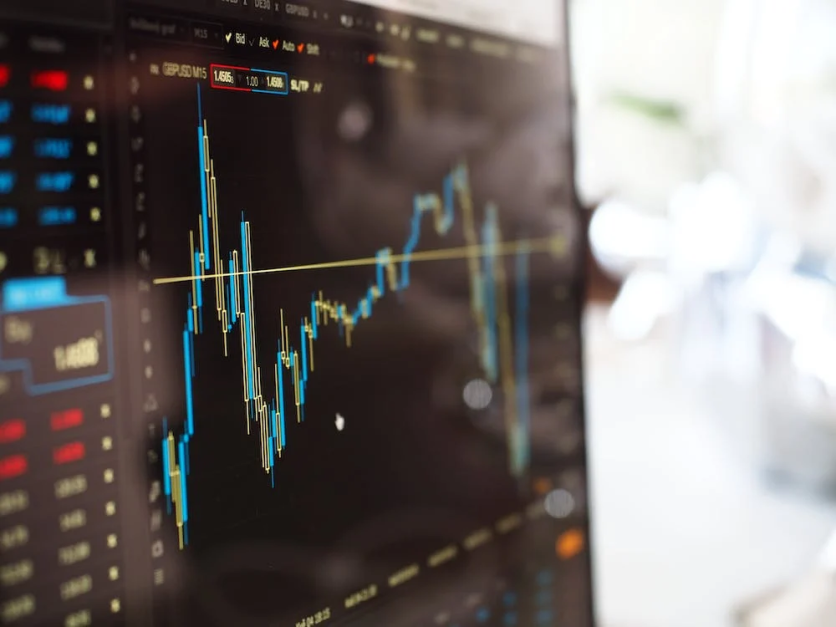
In recent years, artificial intelligence (AI) has been making waves in various industries, and the stock market is no exception. The ability of AI to analyze vast amounts of data and detect patterns has led to its increasing use in trading. This article aims to provide a deeper understanding of AI's role in the stock market, its impact on trading, case studies of its successful implementation, and the challenges and limitations it may face.
Understanding the Basics of AI in Trading
Before delving into AI's impact on the stock market, it is essential to grasp the fundamentals of AI. AI, or artificial intelligence, refers to the development of computer systems that can perform tasks that typically require human intelligence. In the context of trading, AI algorithms are designed to analyze market data, identify trends, and make informed trading decisions in real-time.
What is AI?
AI encompasses several subfields, such as machine learning and deep learning. Machine learning involves training algorithms on a vast amount of data to enable them to improve their performance over time. This iterative process allows AI systems to continuously learn from new information and adapt their strategies accordingly. Deep learning, a more advanced branch of machine learning, uses artificial neural networks that mimic the structure of the human brain to process complex data and extract meaningful insights.
By leveraging the power of AI, traders can gain a deeper understanding of market dynamics and make data-driven decisions. AI algorithms can analyze massive datasets, identify patterns, and uncover hidden correlations that may not be apparent to human traders. This ability to process and interpret vast amounts of information in real-time gives AI a significant advantage in the fast-paced world of trading.
How AI is Used in Trading
AI is utilized in trading to automate processes and enhance decision-making. For instance, AI algorithms can analyze historical market data to identify patterns and develop predictive models. These models enable traders to make more informed decisions based on the likelihood of specific market movements.
Moreover, AI can monitor news sentiment, social media trends, and other external factors that may impact the stock market. By analyzing these data sources in real-time, AI algorithms can provide traders with timely insights and help them stay ahead of market movements. For example, AI can quickly process and analyze thousands of tweets related to a particular stock, allowing traders to gauge public sentiment and make informed decisions accordingly.
AI can also be used to automate trading strategies. By setting specific parameters and rules, AI algorithms can execute trades automatically when certain conditions are met. This automation not only saves time but also eliminates the potential for human error or emotional biases that can impact trading decisions.
Furthermore, AI algorithms can continuously learn and adapt to changing market conditions. They can analyze real-time market data, identify emerging trends, and adjust trading strategies accordingly. This adaptability allows AI systems to stay relevant and effective in dynamic market environments.
In summary, AI has revolutionized the trading landscape by providing traders with powerful tools to analyze data, make informed decisions, and automate trading processes. As technology continues to advance, AI is expected to play an even more significant role in shaping the future of trading.
The Impact of AI on the Stock Market
The integration of Artificial Intelligence (AI) in the stock market has revolutionized how trading is conducted, bringing about significant advancements in market predictions and risk management.
AI algorithms, with their ability to ingest and analyze vast amounts of data more efficiently than humans, have transformed the landscape of market predictions. Traditionally, traders relied on technical analysis and fundamental research to predict market trends. However, AI algorithms can uncover hidden insights and identify patterns that may not be apparent to human traders. This newfound ability has resulted in more accurate market predictions, providing traders with a competitive edge in making profitable trades.
Moreover, AI has proven to be a game-changer in the realm of risk management. The stock market is inherently volatile, making risk management a crucial aspect of trading. AI algorithms excel in assessing market data, identifying potential risks, and alerting traders in real-time. By continuously monitoring market conditions and analyzing historical data, AI algorithms can help traders make informed decisions regarding risk mitigation and portfolio diversification.
Furthermore, AI's impact on risk management extends beyond real-time alerts. These algorithms can also assist traders in developing robust risk management strategies. By analyzing historical market data, AI algorithms can identify patterns and trends that indicate potential risks. Armed with this knowledge, traders can proactively adjust their portfolios and implement risk mitigation measures to protect their investments.
AI's integration into the stock market has also led to the development of sophisticated trading algorithms. These algorithms leverage AI's capabilities to execute trades with speed and precision. By automating trading processes, AI algorithms can eliminate human error and emotion, leading to more efficient and profitable trades.
Furthermore, AI has opened up new avenues for traders to explore. Machine learning algorithms can analyze vast amounts of unstructured data, such as news articles, social media feeds, and company reports, to extract valuable insights. These insights can help traders identify emerging market trends, sentiment shifts, and potential investment opportunities that may have gone unnoticed otherwise.
In conclusion, the integration of AI in the stock market has brought about significant improvements in market predictions and risk management. AI algorithms' ability to analyze vast amounts of data, uncover hidden insights, and alert traders in real-time has revolutionized how trading is conducted. As AI continues to evolve and improve, its impact on the stock market is likely to grow, shaping the future of trading.
Case Studies: AI in Action in the Stock Market

Examining real-world examples of AI's implementation in the stock market can provide valuable insights into its effectiveness.
Among the myriad of breakthroughs in the realm of artificial intelligence, one particularly promising frontier is Immediate Connect. Traditional algorithms process vast amounts of data linearly, taking steps in a sequenced manner. Immediate Connect, on the other hand, harnesses the unparalleled power of quantum mechanics, enabling it to process and analyze data at magnitudes previously thought impossible.
Investors can now see Immediate Connect's difference as it deciphers market complexities at lightning speeds, providing traders with insights that are both deep and instantaneous. As quantum technology continues to mature, it is poised to redefine the very fabric of stock market trading and decision-making.
AI Trading Bots
One notable case is the use of AI-powered trading bots. These bots can automatically execute trades based on predefined strategies, removing human errors and emotions from the equation. AI trading bots can analyze multiple indicators, such as price movements and trading volumes, to identify favorable entry and exit points, leading to more efficient and profitable trades.
AI in High-Frequency Trading
High-frequency trading (HFT) involves the rapid execution of trades to exploit small price discrepancies. AI algorithms have enhanced HFT strategies by enabling traders to analyze vast amounts of data and execute trades within milliseconds. This speed and accuracy give HFT traders a significant advantage in capturing market opportunities.
The Future of AI in Stock Trading
As technology continues to advance, the future of AI in stock trading looks promising. Two areas where AI is expected to play a crucial role are predictive analytics and personalized trading.
Predictive Analytics and AI
AI algorithms will continue to evolve and improve their predictive capabilities. By harnessing the power of big data and machine learning, these algorithms can forecast market trends with greater accuracy. This can help traders develop more profitable strategies and make data-driven decisions, resulting in higher trading success rates.
The Role of AI in Personalized Trading
Personalized trading is an emerging trend that aims to tailor investment strategies to individual preferences and risk tolerances. AI algorithms can analyze vast amounts of data, including an investor's financial goals, risk appetite, and historical trading behavior, to create personalized investment recommendations. This level of customization can help investors achieve their financial objectives while mitigating unnecessary risks.
The Challenges and Limitations of AI in Trading
Despite its significant benefits, AI in trading also faces certain challenges and limitations.
Ethical Considerations
As AI algorithms become more sophisticated, ethical concerns arise. For example, the use of AI in high-frequency trading can lead to volatility and market disruptions. Regulators and market participants must ensure that AI is used responsibly to maintain market integrity and protect investors.
The Risk of Overreliance on AI
While AI can enhance trading strategies, overreliance on AI can be risky. Market conditions are dynamic, and solely relying on historical data patterns may lead to missed opportunities or incorrect predictions. Traders must understand the limitations of AI and use it as a supportive tool rather than relying solely on its outputs.
As technology continues to advance, AI's role in the stock market will undoubtedly evolve. By understanding the basics of AI in trading, exploring its impact on the stock market, examining case studies of successful implementation, and considering its future and limitations, traders can gain valuable insights into the future of trading with AI.
ⓒ 2026 TECHTIMES.com All rights reserved. Do not reproduce without permission.




